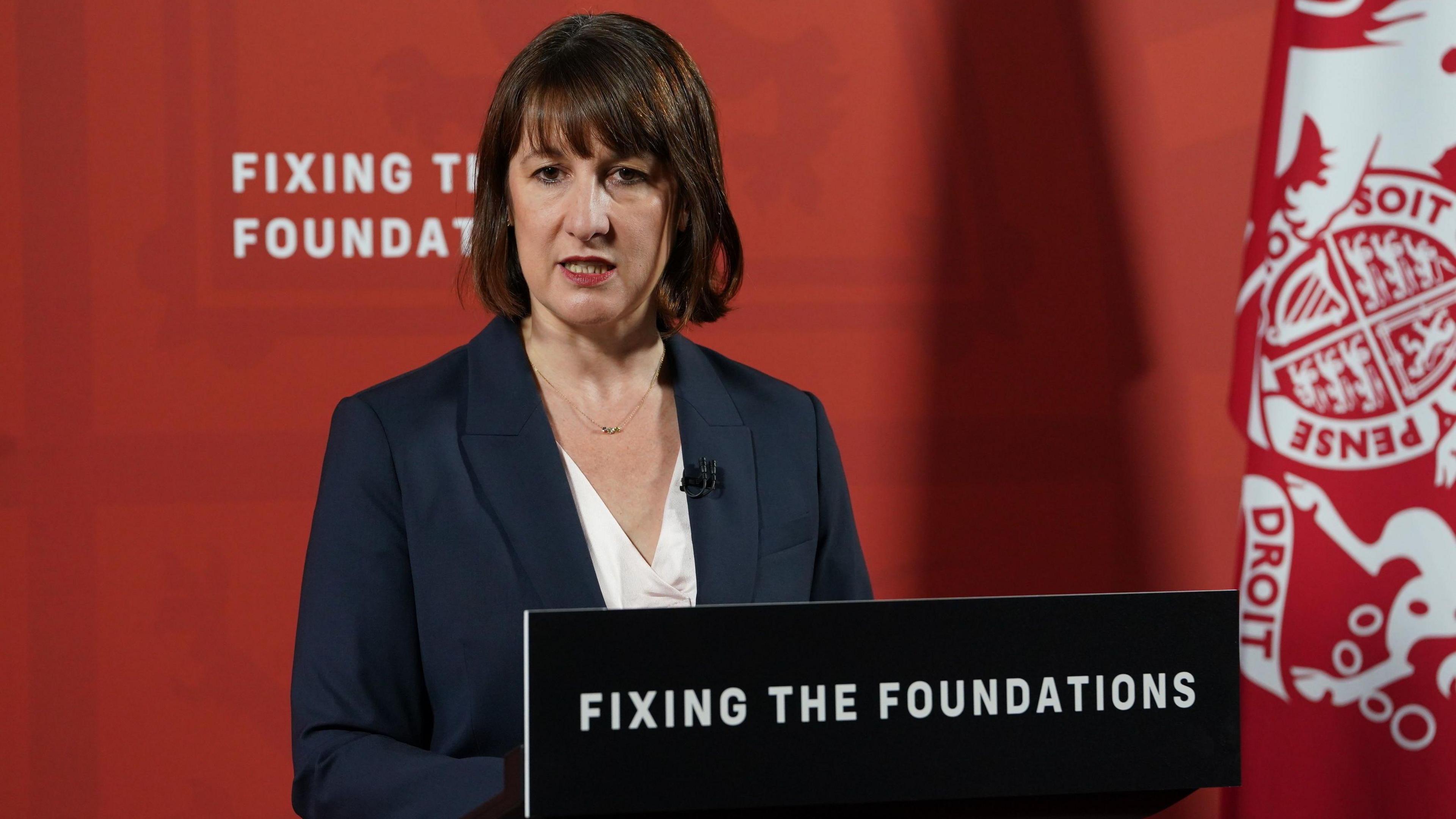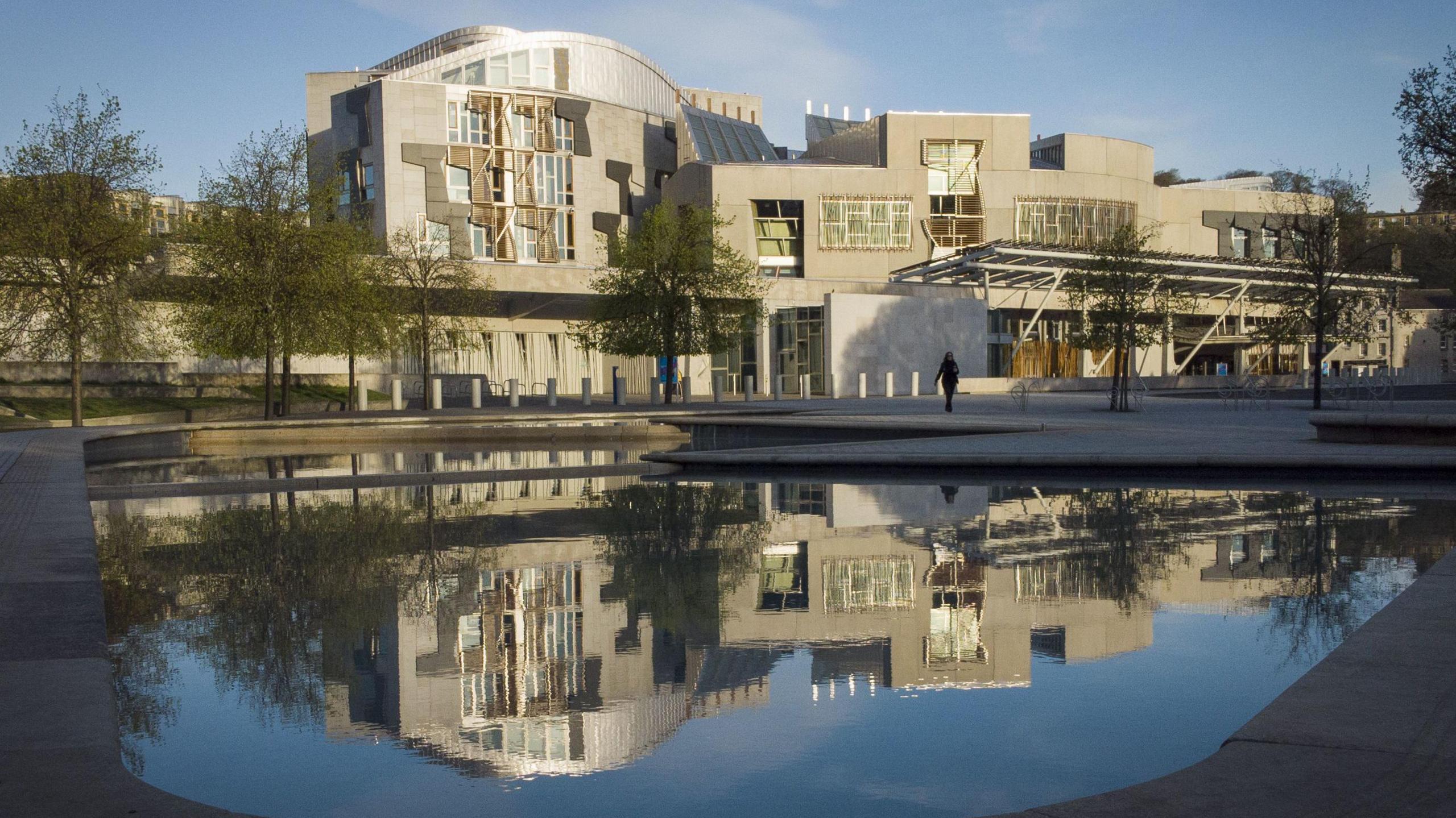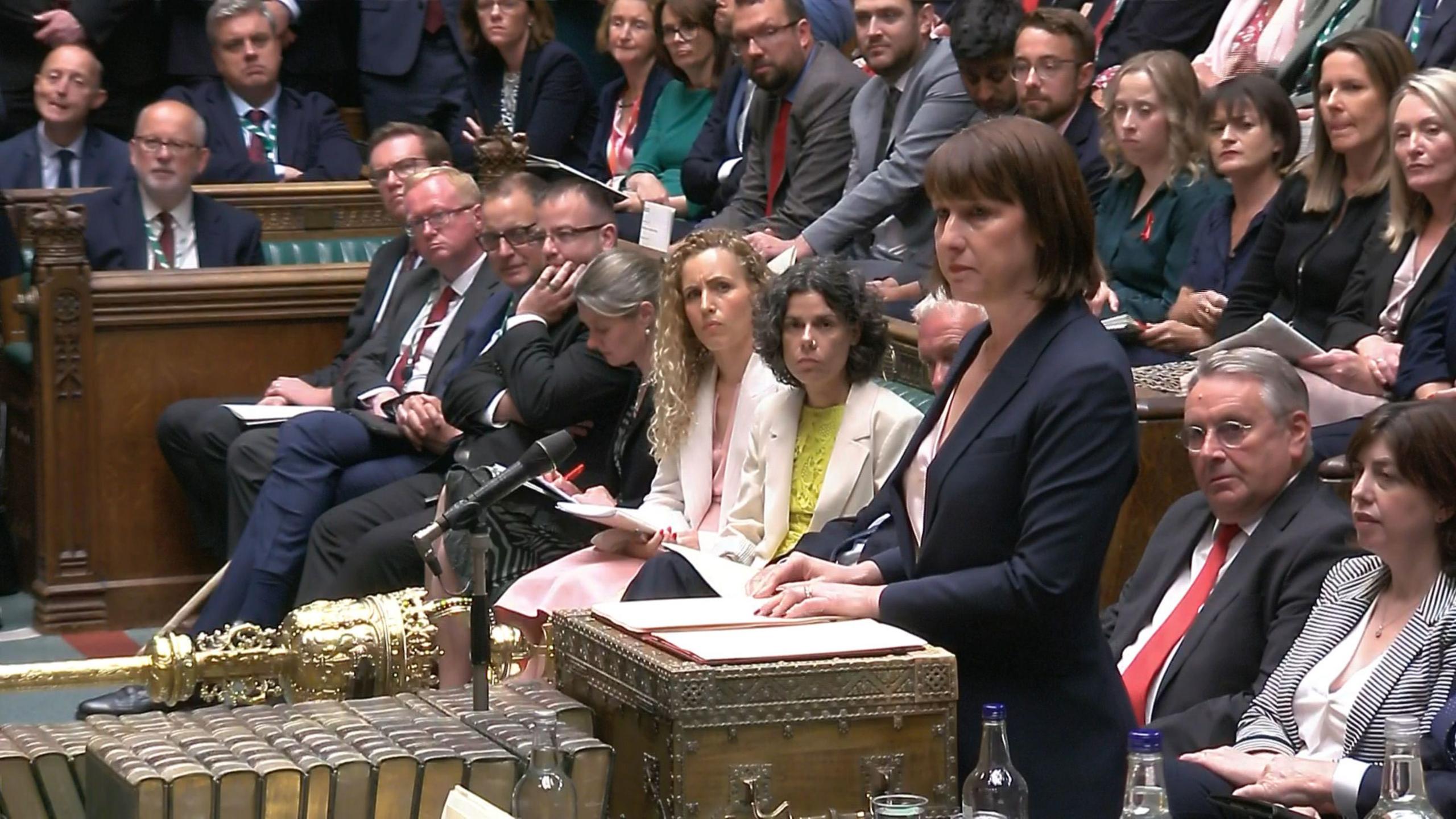How will the chancellor make public spending add up?

- Published
Chancellor Rachel Reeves has delivered her first spending audit - and now the work really begins to make the sums add up.
The big picture is a squeeze on the public finances, with cuts being made in part to finance new pay deals.
Some of the chancellor’s announcements cross the border into Scotland, but not all of them.
So, who will be getting what and how will it be funded?

Public pay increases resulting from the independent pay review bodies will affect the armed forces throughout the UK, with a rise of 6%.
Others who will get pay increases in the 5% to 6% range include Scots working for Whitehall departments, such as tax collection and the Department for Work and Pensions.
Senior doctors, GPs and dentists as well as civil servants in the Scottish government are included in the UK pay deals, as are Scots judges.
Those not included are Scottish teachers and other local government workers, police and prison officers.
Junior doctors in Scotland are not covered by the deal announced in Rachel Reeves' statement to the Commons.
They got a 17% deal last year which covered two different years to the new English one, so they are not directly comparable.
Winter fuel payments scrapped for millions
- Published29 July 2024
Rachel Reeves's spending audit at-a-glance
- Published29 July 2024
Last week, junior doctors began talks on this year’s pay round with NHS employers.
In all these negotiated pay deals, the pay review bodies have a strong influence on the percentage increase Scottish public sector workers expect.
Scottish teachers never settle for any less than English ones, though complications emerge where service reforms and changes to employment contracts are involved.
We can expect lots more public service reform to make these sums add up, as the pay deals announced are not wholly funded by new money but by savings on other budgets.

In other announcements, applying VAT on private school fees from the start of 2025 applies throughout the UK.
It also applies to anyone wanting to pre-pay fees from today onwards.
There could be a significant impact on the Scottish economy from changes to the tax on profits from oil and gas production.
The industry will see its marginal tax rate rise from 75% of profits to 78% from 1 November, fulfilling a Labour manifesto promise and now adding the date.
The windfall tax is part of that, going up from 35% to 38%. That is now being extended until March 2030, and a reformed tax regime is expected to follow on from it.
What remains unclear for the industry is how much it can deduct from that headline rate of tax if it invests some of those profits.
That should become clearer with the budget on 30 October.
The chancellor has said that the government will be "less generous" in allowing companies to use investment as a means of avoiding tax.
The main 29% tax credit that can be claimed on the windfall tax is being removed, but there is no decision yet on how fast other tax allowances will taper.
In the offshore energy industry, that investment allowance plays a crucial part in deciding whether to make a Final Investment Decision.
The warning is that a sharp cut in the October budget will see investment going to other oil-producing countries, leading to a steep decline in activity and production in UK waters. Expect ferocious lobbying to continue until the Budget.

The squeeze on the public finances, including in-year (that's to say, 2024-25) spending in Whitehall departments, will be brought about by having to find £5.5bn this year and more than £8bn next year.
In relation to the forthcoming budget, Ms Reeves said the problems in the public finances will affect spending and welfare and tax.
This brought cries in the Commons of "we told you so" from the SNP on spending and from Tories on tax.
The UK government's Scotland Office is saying nothing, so far, about the in-year effect on Holyrood's block grant this year, or next.
Cuts in day-to-day spending could be absorbed into the budget for the next financial year to help finance ministers handle constrained devolved budgets this year.
Ms Reeves' cuts in capital spending appear to be all about unfunded Conservative government commitments.
Logic suggests that if no money has been allocated to roads or hospitals in England, there is no associated capital funding to be clawed back from devolved administrations.
Difficult decisions lie ahead.
But the good news for Holyrood, and others who look to the Treasury for much of their funding, is a big change to the way budgets are constructed and timed.
Not only are they being brought forward from March to autumn, giving more time for scrutiny and planning, but the chancellor wants to force her department to commit to two year budgets with a time horizon of at least three years for regular spending reviews.
Until now, the timing of such budget events has been pretty chaotic and unclear.
That ought to help all those organisations, from the Scottish government to your local, grant-dependent social care provider, which want to be able to plan beyond more than one year of funding.
Related topics
- Published29 July 2024
